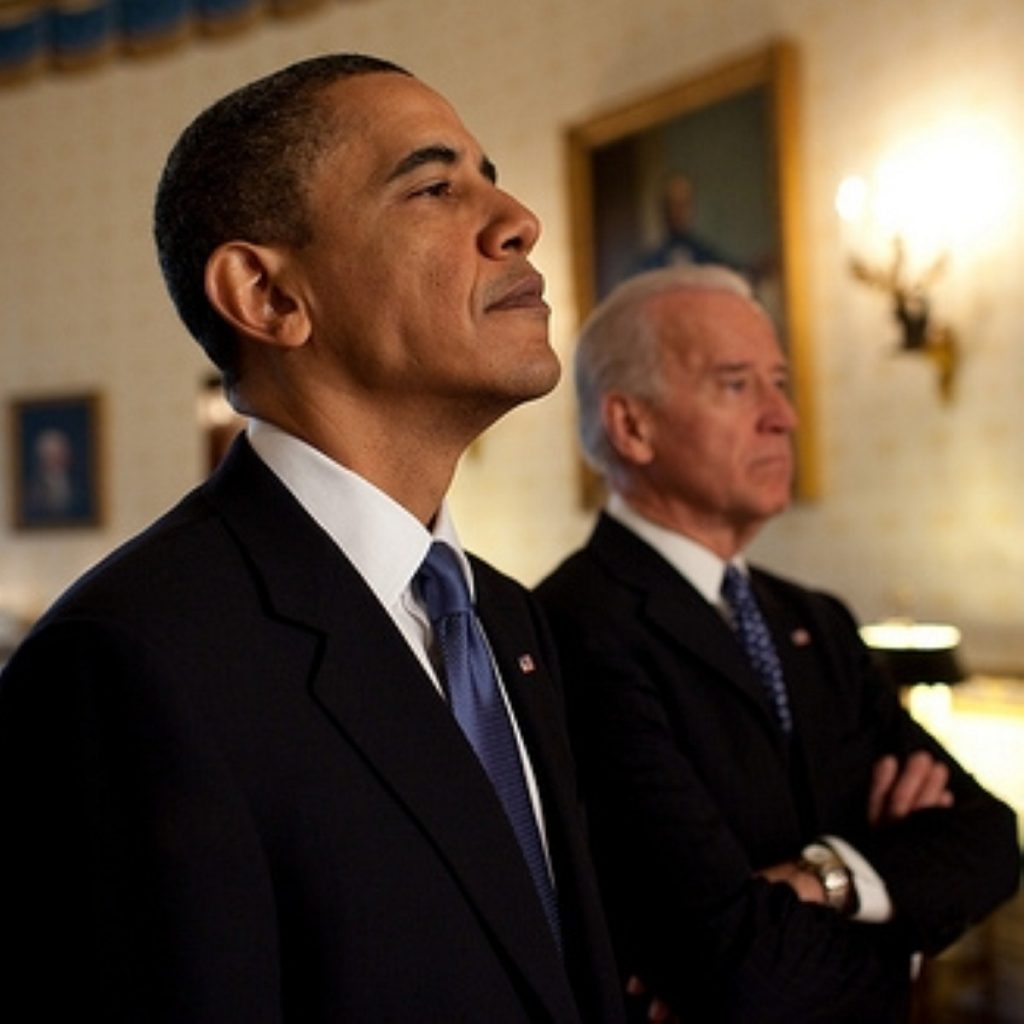‘Special relationship’: America gives Britain a stern talking to
Britain found itself on the receiving end of a stern talking to from senior American officials today on issues as diverse as the EU and the environment.
Joe Biden's aides reiterated US irritation with Britain's plan to hold a referendum on EU membership while former vice-president Al Gore attacked the coalition's climate change policy.
"There were such hopeful signs when prime minister Cameron came into power," Gore told Channel 4 News.
"I have worried there are influences in his party that have backed him off."


The former presidential candidate also took chancellor George Osborne to task for saying that "we're not going to save the planet by putting our country out of business", a comment which he branded "short-sighted indeed".
He added: "Anyone who proposes a direct conflict between the health of business and the health of the planet and environment in a great country like the United Kingdom is seriously misinformed.
"Business suffers from flooding, from droughts and wind storms and sustainable business prosperity really has to be based on a view of the future that is grounded in facts.
"We can create millions of new jobs by leading this transition towards renewable energy sources, much higher levels of efficiency and recycling and sustainable capitalism."
The Gore comments come as figures in the current US administration again put pressure on Downing Street over the promise of an EU referendum.
The pressure from the US is unlikely to ease over the years ahead, as Washington reiterates its view that it prefers the UK – which usually shares the US' view on international relations – to maximise its influence by staying in the EU.
"With respect to prime minister Cameron's speech, we obviously support his comments about the important role of the UK in the EU," an aide to the vice-president said.
Another told reporters: ‘It's in our interest for there to be a strong UK in a strong EU."
Biden will stop for talks with Nick Clegg before a working lunch with Cameron and a meeting with the National Security Council.
Referendum pledge fallout
Cameron's referendum pledge has not had the revolutionary effect on the polls his advisers had hoped.
Labour's lead – usually in the double digits – has fallen to five per cent, but the movement comes from voters returning to the Tories or confirming it made them more likely to vote, rather than any influx of Liberal Democrat or Labour voters.
"The speech, and more importantly the policy it articulated, has made Tories feel better about being Tories. This is not to be sneezed at – but let's not confuse it with having changed anybody's mind," Lord Ashcroft, a top Tory donor and pollster, commented on ConservativeHome.
"In debating the question in the coming years we must remember that there is only so much oxygen in the room.
"Most people do not pay much attention to politics at all; when they do, let's make sure they hear something that changes their view of the Conservative party, not just of Europe."
The pledge of a referendum does not even seem to have silenced Cameron's critics.
Following weekend reports of a possible leadership challenge from Tory MP Adam Afriyie, this morning's newspapers contained rumours of new challenges to the prime minister's authority.
The Daily Mail reported that Tory MPs were planning on calling for George Osborne to be replaced as chancellor if he fails to prevent a triple-dip recession.
There are also rumours critics are prepared to trigger a no-confidence vote in Cameron's leadership if the Tories' poll rating does not improve by summer 2014 – a year before the general election.









